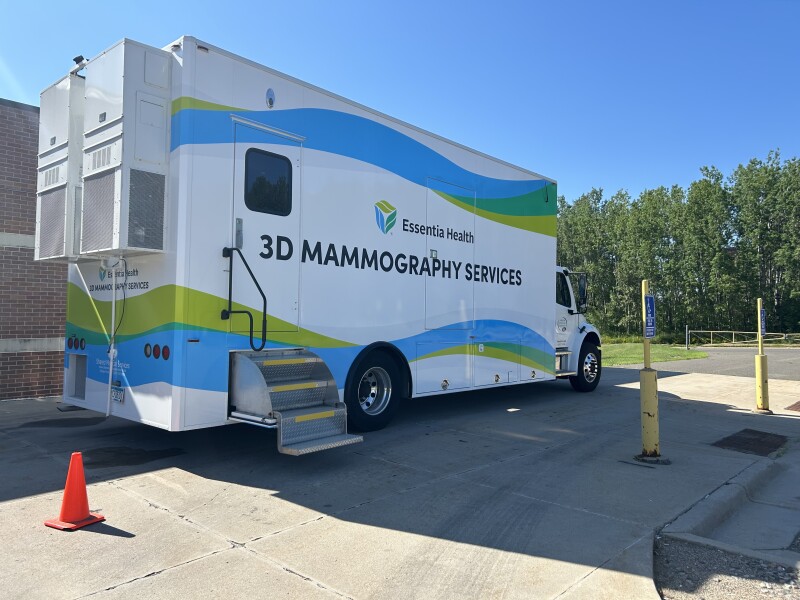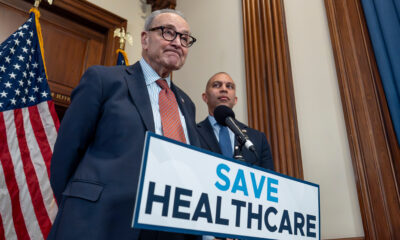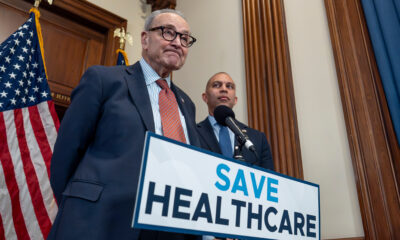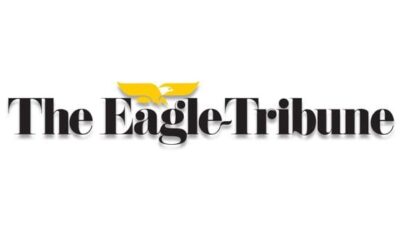Health
Mobile Mammogram Stations Enhance Early Cancer Detection in Rural Areas

Mobile mammography units are revolutionizing breast cancer screening in rural communities, providing essential early detection services to underserved populations. In Virginia, Sarah Hoard, who has a family history of breast cancer, began her screenings in her 30s. Her diligence paid off when she was diagnosed with invasive ductal carcinoma and ductal carcinoma in situ last May.
Hoard opted for a bilateral mastectomy in August, crediting early detection with her favorable treatment options. “If there is an inkling that ‘this is weird’ or ‘not normal,’ make sure to get it checked and just be an advocate for yourself,” she advised.
The American Cancer Society estimates that nearly 317,000 new cases of invasive breast cancer will be diagnosed this year in the United States, with over 42,000 women expected to die from the disease. Annual mammograms are typically recommended starting at age 40, but those with a family history, like Hoard, should begin earlier.
Hoard has a significant family history of breast cancer, with four aunts affected and her father testing positive for the BRCA1 genetic mutation. Since then, she has undergone screenings every six months, alternating between mammograms and MRIs. “With the early detection, it hadn’t spread to my lymph nodes,” Hoard noted. “If they hadn’t caught it early, my prognosis and my outcome could have been very different.”
Addressing Rural Healthcare Barriers
Despite the importance of early detection, access to screening remains a challenge in rural areas. Julie Singewald, vice president of radiology at Essentia Health, emphasized the difficulty many face in obtaining care. “In some of these rural areas, they would have to travel 90 to 120 minutes to get to the nearest facility that could provide the screening,” she explained.
Dr. Cathy Cantor, chief medical officer for population health at Essentia, highlighted the financial impact of accessing healthcare. An appointment often means missed work, resulting in lost income. “Getting the care to where the people are is really important,” Cantor said, noting that improving access not only affects health outcomes but also financial stability.
Essentia Health is actively addressing these challenges ahead of November 20, 2023, National Rural Health Day. The organization has implemented a mobile mammography program that began with two sites in 2022 and has expanded to nearly 20 rural communities across its service area, including locations in Minnesota and Wisconsin.
In the fiscal year 2025, Essentia completed 38,748 breast cancer screenings, with approximately 25% conducted through mobile units, underscoring the importance of these services in small communities. “We know those patients still need the care, no different than those in our bigger and more densely populated areas,” Singewald added.
Future of Mobile Cancer Screenings
The state of Minnesota’s application for Rural Health Transformation funding aims to increase the number of rural providers engaged in value-based care by 15%. In this model, health systems share savings with insurers when costs are lower than expected. Essentia has removed $159 million from total care costs across all value-based programs from 2018 to 2023.
Melissa Hawk, a health care worker with the Bois Forte Band of Chippewa, collaborates with Essentia to coordinate annual screening events for tribal communities. “The nearest mammography facility is approximately one hour away, making it challenging for many to prioritize this essential health service,” Hawk stated. “A mobile unit offers a convenient solution, allowing women to undergo annual screenings during breaks.”
Patients enter the mobile unit, which features a changing room and an imaging suite. The screening process takes about 30 minutes, during which 3D images are captured. Appointments can be scheduled through primary care clinics or MyChart, with walk-ins also accepted.
“Our goal is to start with screening. If something is detected, then we do follow-up imaging,” Singewald noted. In addition to breast cancer screenings, Essentia is expanding its mobile lung cancer screening program, with a target of increasing screenings by 55%, or 8,400 screenings, in the current fiscal year.
The introduction of mobile mammogram stations represents a critical step in enhancing healthcare access and improving early detection rates in rural communities, ultimately aiming to save lives and promote better health outcomes.
-

 Technology5 months ago
Technology5 months agoDiscover the Top 10 Calorie Counting Apps of 2025
-

 Technology2 weeks ago
Technology2 weeks agoOpenAI to Implement Age Verification for ChatGPT by December 2025
-

 Health3 months ago
Health3 months agoBella Hadid Shares Health Update After Treatment for Lyme Disease
-

 Health3 months ago
Health3 months agoAnalysts Project Stronger Growth for Apple’s iPhone 17 Lineup
-

 Health3 months ago
Health3 months agoErin Bates Shares Recovery Update Following Sepsis Complications
-

 Technology5 months ago
Technology5 months agoDiscover How to Reverse Image Search Using ChatGPT Effortlessly
-

 Technology3 months ago
Technology3 months agoElectric Moto Influencer Surronster Arrested in Tijuana
-

 Technology2 months ago
Technology2 months agoDiscover 2025’s Top GPUs for Exceptional 4K Gaming Performance
-

 Technology5 months ago
Technology5 months agoMeta Initiates $60B AI Data Center Expansion, Starting in Ohio
-

 Technology5 months ago
Technology5 months agoRecovering a Suspended TikTok Account: A Step-by-Step Guide
-

 Health5 months ago
Health5 months agoTested: Rab Firewall Mountain Jacket Survives Harsh Conditions
-

 Lifestyle5 months ago
Lifestyle5 months agoBelton Family Reunites After Daughter Survives Hill Country Floods





















